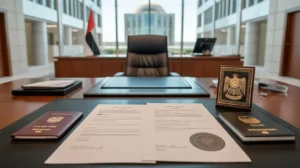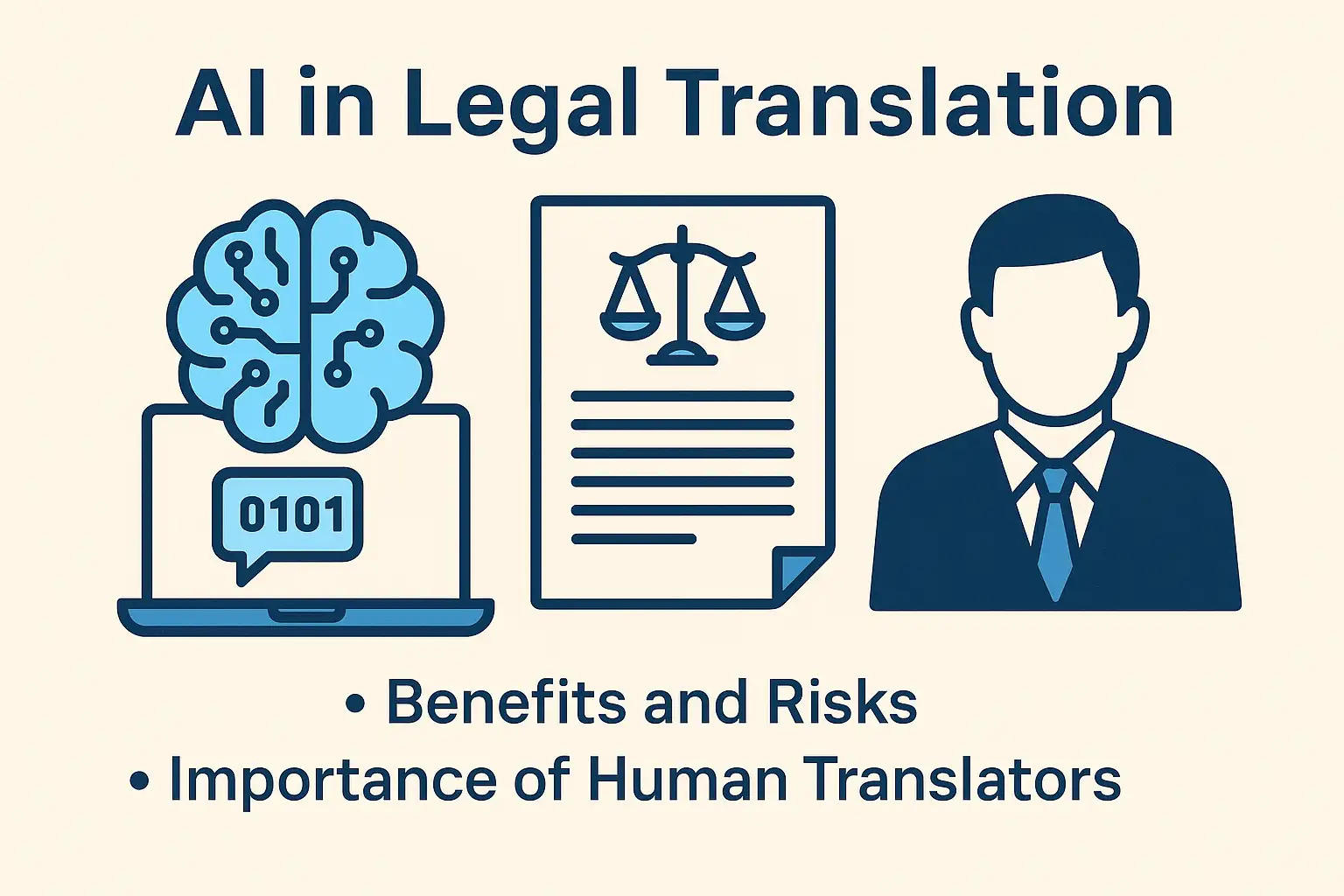Artificial Intelligence (AI) is reshaping industries across the globe from jobs to marketplaces, bringing both opportunities and challenges. One such area is legal translation, while AI is being increasingly adopted for its speed, scalability, and cost-efficiency. The question where ‘Can AI truly replace human translators? Still persist for many of us.
Here we will discuss the role of AI in translating legal documents, It’s benefits, limitations, and impacts.
Understanding AI in Translation
AI uses technologies like Large Language Models (LLMs) and Neural Machine Translation (NMT) to analyze and translate text. These tools study patterns in huge data sets and can output text in many languages quickly.
The Benefits of AI Translation
AI offers several advantages, especially for large volumes of work:
Speed & Scale
AI can produce translations in minutes that might take humans hours or days.Cost Efficiency
AI reduces costs for repetitive tasks like manuals or non-legal texts.Automation
It can format documents, standardize terms, and create drafts for translators to refine.
Why Human Oversight Is Still Essential
Though AI is helpful, legal translation requires deeper understanding:
Legal Accuracy
Legal texts use precise terms and structures; small errors can be serious reddit.com.Cultural & Jurisdictional Nuance
Laws and practices differ by region—AI can miss subtle meanings .Contextual & Linguistic Precision
AI often lacks awareness of tone, implied meaning, or idiomatic expressions torjoman.com.Confidentiality
Legal documents are sensitive; using cloud-based AI may risk data privacy .
Thus, every AI-generated draft needs review and certification by a human legal translator.
Impact of AI on Legal Translation Services
Positive Outcomes
Streamlined Workflow
AI provides quick drafts and term suggestions to translators.Consistency
Maintains uniform terminology across long documents.Faster Deliveries
Completes projects more quickly.Better Access
Makes legal documents available in multiple languages.
👎 Risks & Challenges
Possible Inaccuracy
Mistakes in legal clauses could cause issues.Over-Reliance
Trusting AI too much can lead to unverified errors.Ethical Concerns
Using AI final translations without disclosure is misleading.Privacy Risks
Uploading documents to AI systems may expose confidential data
Can AI Replace Human Translators?
No—not fully. AI excels in speed but lacks legal responsibility. A human translator must certify that a translation is correct and legally binding . Legal translation is more than converting words—it’s about legal validity.
Frequently Asked Questions
1. Is AI translation legal for use in UAE courts and government?
No. Only translations certified by UAE Ministry of Justice licensed translators are accepted
2. How do AI and humans work together in legal translation?
AI drafts and highlights terminology, then a human expert reviews, edits, and certifies the document.
3. Is AI alone enough for legal translation?
No. AI may miss contextual or cultural nuances. Legal-certified human review is essential for accuracy and compliance.
4. Does AI make translations faster?
Absolutely. AI can draft content quickly, but final certified translations still require human review.
5. Are legal documents safe when using AI?
Sensitive legal documents should not be uploaded to unsecured AI platforms. Trusted providers use secure servers and follow data laws.
6. How does Index Legal Translation use AI?
We use AI to speed up first drafts and maintain term consistency—but our licensed translators always review, certify, and stamp the final versions. This ensures accuracy, compliance, and confidentiality.
Final Thoughts
AI is a powerful tool in legal translation—it provides speed, automation, and consistency. But when legal certainty is on the line, human expertise is irreplaceable. AI assists, but licensed human translators certify the final translation.
At Index Legal Translation, we combine the best of both worlds: AI efficiency with certified human oversight, delivering fast, reliable, and legally binding translations.







